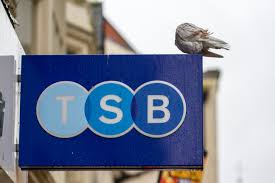The number of UK residential property transactions increased by 12% in November in comparison to the same month last year, new data published by HMRC has revealed.
Residential transactions hit 114,200 in November, which was also a 4% month-on-month rise from October.
HMRC stated that UK residential transactions have been “stable” in recent months, and remain similar but slightly elevated above their pre-pandemic levels. The latest estimate of 114,200 for November this year compares to 110,210 in November 2019.
For non-residential property, the latest HMRC data also shows that the number of transactions reached 10,550 in November. This figure reflected a a 2% fall from November last year, but a 12% month-on-month increase on October.
HMRC’s monthly estimates are based on its own records as well as those of Revenue Scotland and the Welsh Revenue Authority, for Stamp Duty Land Tax (SDLT), Land and Buildings Transaction Tax (LBTT) and Land Transaction Tax (LTT) in each of the three nations respectively.
Commenting on the latest figures, chairman of Air Club, Stuart Wilson, said: “Rising interest rates and soaring inflation continue to contribute toward a challenging economic climate for both advisers and their clients, with industries across the board feeling the impact.
“However, today’s HMRC figures show that the UK housing market is still remarkably robust and figures have slightly increased compared to October’s data.
“Indeed, residential property transactions have even stayed stable at a level comparable to the market pre-pandemic – an impressive feat given the challenges that face many advisers and their clients every day. As we head towards the end of the year and increasing numbers of customers seek to transact with offers from the ‘post mini-Budget’ paradigm, lenders will need to be more innovative and flexible than before.”
Chief sales and marketing officer at Phoebus Software, Richard Pike, added: “It is encouraging to see that the pipeline of transactions continued to increase in the months leading up to the chaos caused by the now infamous mini-budget.
“Whether this trend will continue into the new year is questionable, especially as the winter months will be the most expensive, even with the energy price cap. Lenders will be looking to finish the year and head into 2023 on a high.
“So, the recent spate of rate reductions could continue, even as the base rate increases. Keeping on top of risk and vulnerability will continue to be a priority though and the technology lenders have in place will come to the fore.”
Latest News
-
Average UK house price surpasses £300k – Halifax
-
Bank of England holds base rate at 3.75%
-
Mortgage Advice Bureau acquires Dashly
-
Bridging loans fall to lowest average completion time in eight years
-
Regulators announce first six firms to join ‘Scale-Up Unit’
-
House prices recover month-on-month in January – Nationwide
Perenna and the long-term fixed mortgage market

Content editor, Dan McGrath, spoke to head of product, proposition and distribution at Perenna, John Davison, to explore the long-term fixed mortgage market, the role that Perenna plays in this sector and the impact of the recent Autumn Budget
The role of the bridging market and technology usage in the industry
Content editor, Dan McGrath, sat down with chief operating officer at Black & White Bridging, Damien Druce, and head of development finance at Empire Global Finance, Pete Williams, to explore the role of the bridging sector, the role of AI across the industry and how the property market has fared in the Labour Government’s first year in office.
NEW BUILD IN FOCUS - NEW EPISODE OF THE MORTGAGE INSIDER PODCAST, OUT NOW

Figures from the National House-Building Council saw Q1 2025 register a 36% increase in new homes built across the UK compared with the same period last year, representing a striking development for the first-time buyer market. But with the higher cost of building, ongoing planning challenges and new and changing regulations, how sustainable is this growth? And what does it mean for brokers?
Does the North-South divide still exist in the UK housing market?

What do the most expensive parts of the country reveal about shifting demand? And why is the Manchester housing market now outperforming many southern counterparts?
In this episode of the Barclays Mortgage Insider Podcast, host Phil Spencer is joined by Lucian Cook, Head of Research at Savills, and Ross Jones, founder of Home Financial and Evolve Commercial Finance, to explore how regional trends are redefining the UK housing, mortgage and buy-to-let markets.
In this episode of the Barclays Mortgage Insider Podcast, host Phil Spencer is joined by Lucian Cook, Head of Research at Savills, and Ross Jones, founder of Home Financial and Evolve Commercial Finance, to explore how regional trends are redefining the UK housing, mortgage and buy-to-let markets.
© 2019 Perspective Publishing Privacy & Cookies










Recent Stories